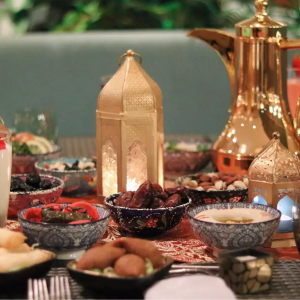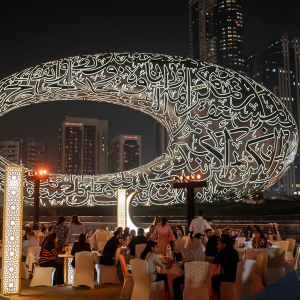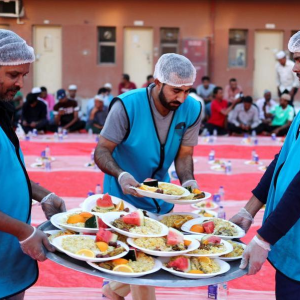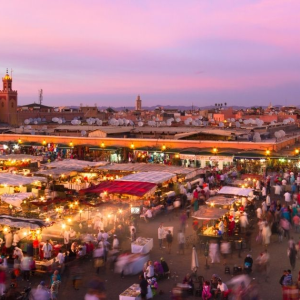The Real Lifestyle Behind the Glamour
Dubai has always been known as a city of dreams—a place where the skyline touches the clouds, and life feels like a blend of luxury and ambition. For many, moving to Dubai represents a leap toward better earnings, lifestyle, and global exposure. But in 2025, behind the towering buildings and shiny malls, there’s a different side to the story—one of rising rent, soaring grocery bills, and the daily hustle to maintain balance.
This story isn’t just about numbers. It’s about the lives that are built around them. It’s about the families, the young professionals, the dreamers, and the doers trying to carve a space for themselves in one of the world’s fastest-growing cities.

Rent in 2025: A Real Pressure Point
Rent in Dubai has climbed significantly in 2025, making it one of the top expenses for anyone living in the city. Expats who moved to Dubai a few years ago are now facing rental hikes that feel overwhelming, with some seeing their rent increase by over 25% in just 12 months.
A one-bedroom apartment in mid-tier areas like JVC, Business Bay, or Al Barsha will now cost between AED 5,000 to AED 6,500 per month. More luxurious or centrally located areas such as Dubai Marina or Downtown Dubai can push the monthly rent well beyond AED 8,000 or even AED 10,000.

Some expats who once enjoyed spacious villas or two-bedroom apartments have now downsized to studios or shared accommodations. For many middle-income workers, especially those supporting families back home, this has created serious financial pressure. People are constantly adjusting budgets, looking for cheaper neighborhoods, or negotiating hard with landlords.
Despite this, Dubai’s rental market continues to attract new tenants—driven by the promise of no income tax and a modern lifestyle. But the reality on the ground? It’s often a daily juggle between lifestyle expectations and financial limitations.
Grocery Costs: Rising With Every Cartload
The grocery store bill is another area that’s catching people off guard. While Dubai offers a wide range of supermarkets—from budget-friendly options like Lulu Hypermarket and Carrefour to premium stores like Waitrose and Spinneys—the overall cost of groceries has increased in 2025 due to inflation and higher import duties.
For a single person, a monthly grocery bill now averages between AED 1,200 to AED 1,800 depending on eating habits and brand preferences. Families of four can easily spend anywhere between AED 2,500 to AED 3,500 per month.
Basic staples like rice, milk, bread, and eggs remain relatively affordable, but it’s the imported snacks, international brands, and meat products that significantly raise the bill. Add to that the rising cost of fruits and vegetables—particularly those not grown locally—and it’s no wonder many households are now planning meals more strictly.
Dining out has also become a luxury for many. Where weekend brunches or dinners used to be routine, now they’re reserved for special occasions. Food delivery apps are still widely used, but with service charges and delivery fees, people are becoming more cautious.

Real People, Real Stories
It’s easy to talk numbers. But to truly understand the cost of living in Dubai, you need to hear the stories of the people navigating it.
Meet Naina, a 32-year-old single woman working in marketing. She moved to Dubai in 2020 and lived comfortably in a one-bedroom apartment in JLT. Today, her rent has jumped by 35%, and she has moved into a shared apartment in Al Furjan.
“I love Dubai. It’s given me the career I always dreamed of. But the lifestyle I had when I arrived feels almost out of reach now. I’ve cut back on eating out, shopping, and even travel. I used to save AED 3,000 a month. Now I’m lucky if I manage AED 1,000.”
Farhan and Aleena, a Pakistani couple with two children, have a similar story. Farhan works as an IT consultant, while Aleena is a part-time teacher. In 2023, they lived in a two-bedroom flat in Mirdif. By 2025, they’ve moved to a smaller unit in Discovery Gardens.
“Our rent increased, school fees went up, groceries became costlier, but our salaries remained the same,” says Farhan. “We started cooking more at home, reduced unnecessary subscriptions, and even postponed our family trip this year.”
Yet, not every story is filled with struggle.
Ravi, a 45-year-old entrepreneur from India, says that despite the rising costs, Dubai is still where he feels most stable.
“Yes, it’s expensive, but the business opportunities here are unmatched. I’m investing in real estate now. The cost of living is high, but so is the quality of life. My children are safe, and my work is thriving.”
Lifestyle Choices Make a Big Difference
How much you spend in Dubai depends heavily on the kind of lifestyle you choose. Some expats live modestly and save aggressively, while others fall into the glamour trap—buying luxury items, dining out often, and living in premium apartments.
Monthly spending estimates in 2025 look like this:
- Single Person (shared apartment): AED 4,000–6,000
- Couple (1BHK apartment): AED 8,000–12,000
- Family of Four (2-3BHK apartment): AED 14,000–20,000
This includes rent, groceries, utilities, transport, and basic leisure. School fees, healthcare, and travel are additional expenses.
The key is knowing where to cut back. Shopping at local markets instead of premium stores, using the metro instead of taxis, and attending free community events rather than paid experiences—all these help reduce spending without lowering quality of life.

Salaries: Static While Expenses Climb
Here’s where the pain really hits. In 2025, while the cost of rent and food has jumped, salaries across most industries have remained flat. This imbalance is forcing many to live paycheck to paycheck. Even skilled professionals with decent incomes are struggling to maintain their previous lifestyle.
The average monthly salary for mid-level professionals hovers around AED 13,000–15,000. But with rising rents, utility bills, groceries, and transportation costs, saving has become a luxury.
Freelancers and remote workers face even more uncertainty, as project-based incomes vary and often don’t match the cost of living.
What Keeps People Going?
Despite the financial strain, there’s something magical about Dubai that keeps people motivated. The city continues to offer world-class infrastructure, career opportunities, safety, and global exposure.
There’s also a strong sense of community. Many expats say the support systems they’ve built—with friends, co-workers, and neighbors—help them feel less alone in this struggle.
People are also finding innovative ways to thrive:
- Investing in Dubai’s real estate to reduce long-term rent costs
- Moving to “budget-friendly” zones like JVC, Al Nahda, or Silicon Oasis
- Starting side businesses to generate passive income
- Using smart budgeting tools and apps to track expenses
- Participating in cashback and discount programs offered by stores and banks
And then there’s the golden visa—offering long-term stability and security to those who qualify. For many, this makes the struggle worth it.
Final Thoughts: From Struggle to Strength
Yes, living in Dubai in 2025 is expensive. Rent is high. Groceries cost more. Salaries feel stagnant. But this is not just a story of struggle—it’s one of adaptation, ambition, and grit.
Dubai continues to attract those who dream big. People are adjusting, learning, growing—and in many ways, thriving despite the odds. Their stories serve as a reminder that life in Dubai isn’t just about luxury; it’s about resilience, courage, and smart choices.
And for those who manage to balance it all, Dubai still shines as a city of endless possibilities.
Follow us on instagram: UAE STORIES













